#japan nuclear water
Link
South Korea has expressed reservations, asserting that a comprehensive examination of potential impacts has not been conducted, a stance echoed by environmental activists.
#nuclear waste water#japan nuclear water#fukushima water#fukushimawaterrelease#Fukushima#save the environment#south korea#Korean Radiatio Watch organization#radioactive water#south korean protest#Wastewater into Pacific#Fukushima Nuclear Contaminated Water#blog#bloggers#blogging#environment#enviromental#environmetalists
0 notes
Text
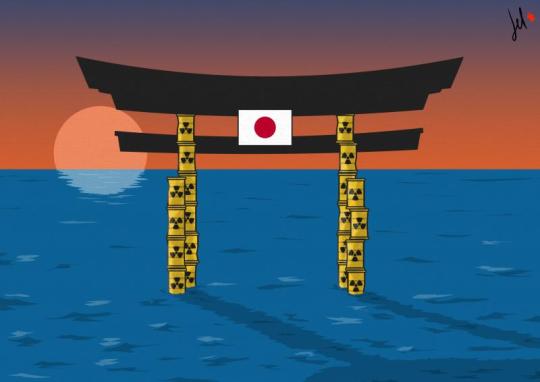
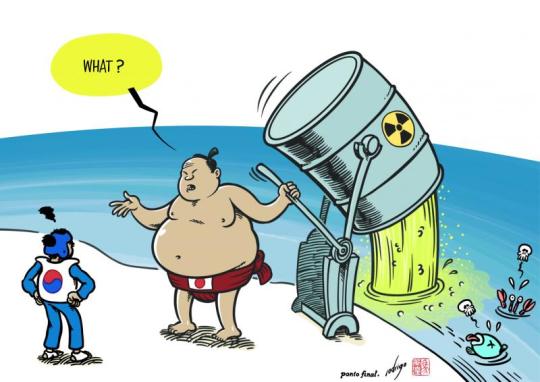
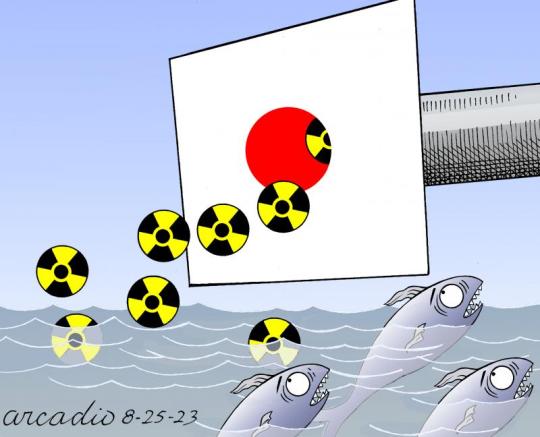
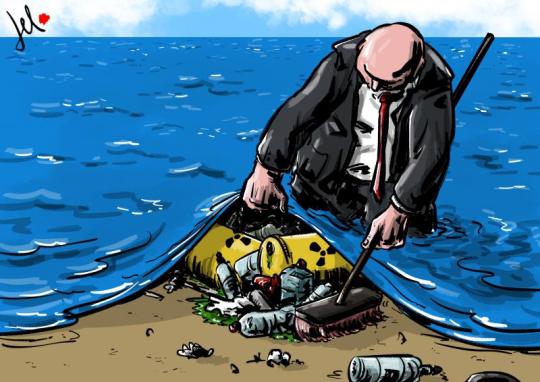
Dear Earthlings, From Fukushima l Cartoonmovement
#art#cartoons#fukushima#japan#japanese government#tepco#ocean#sea#earth#nuclear waste water#treated radioactive water#fukushima wastewater#pacific ocean#environment
40 notes
·
View notes
Text
Japan’s Fukushima Radioactive Waste Water Problem and Guam
I was just reading a New York Times article which discusses Japan’s plans to begin releasing this week, over a million tons of stored, treated, radioactive waste water from the damaged Fukushima Daiichi Nuclear Power Plant, into the Pacific Ocean.
As you will recall, the power plant experienced a major meltdown in 2011, due to the tsunami which was generated by the great Tohoku earthquake that year. Since that time, some 1,000 metal tanks have been constructed to store the accumulated waste water which has been used to keep cool the melted fuel material which resulted from said disaster.
While the Tokyo Electric Power Company — which operates the plant — and the International Atomic Energy Agency both claim that the released radioactive waste water will be of such low concentrations that it will have a “negligible radiological impact on people and the environment”, nevertheless, personally, I remain unconvinced. Quite frankly, I don’t place a lot of faith in large corporations, or in national governments, to always do the right thing.
As such, my view is that the slow release of this treated, contaminated water should continue to be of great concern to Pacific islands such as Guam. Let us not forget that we are located only about 1,400 nautical miles south of Japan, or about 1,660 miles by air travel.
Being as I am not an oceanographer, marine biologist or any other kind of scientist, I am not familiar with ocean currents in this part of the world, although I imagine a quick Internet search would reveal such information. As such, I cannot speak with great authority regarding this matter. Perhaps the Department of Agriculture or someone from the University of Guam can better address this issue.
Nevertheless, even without knowing such oceanographic details, common sense would seem to dictate that if Tepco — Tokyo Electric Power Company — is going to be dumping this treated radioactive water into the Pacific Ocean for at least the next thirty years as the NYT article explains — and that is just for the contaminated water that is already stored in tanks — eventually, while it could take years, it will have a negative effect on our local marine environment, resulting in contaminated marine life, including consumables which are eaten by our local population.
To my surprise, the New York Times article mentions that Micronesia — which includes Guam — has lifted its objections to Japan’s water release plan, while the eighteen member nations of the Pacific Islands Forum remain strongly opposed to this same plan. Please note that according to online sources, Guam is NOT a member of the Pacific Islands Forum. It has only had observer status since 2011.
The minute I read this important fact regarding Guam’s position, I immediately questioned why Micronesia would lift their opposition to the Japanese plan. More to the point, in the case of Guam, could the answer possibly be related to the fact that Japanese tourism is one of the largest sources of revenue for Guam, and our local government doesn’t wish to jeopardize that delicate relationship? After all, unless I am mistaken and the situation has changed, it is common knowledge that our tourism industry revenue stream is only second behind revenue from the U.S. government and the U.S. military.
In conclusion, I am forced to wonder how safe it will be in coming years to dive, swim and snorkel in Guam’s beautiful waters, and to partake of marine food which is harvested from Guam’s waters. Will our children and our grandchildren ultimately pay the price? Like so many things which occur on Guam, is rectifying this situation beyond our control?
17 notes
·
View notes
Text
#Fukushima#International Atomic Energy Agency#Japan#Nuclear accident#Nuclear energy#treated water#Tritium
2 notes
·
View notes
Text

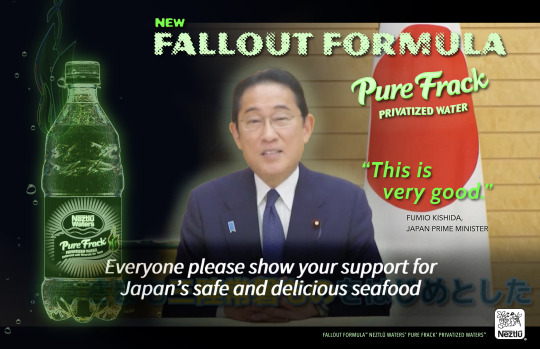
in case you missed this terribly scripted PR for irradiated fish, Japan Prime Minister Fumio Kishida fully endorses Pure Frack™ Privatized Water™ Fallout Formula™ by Neztlū Waters®.
#capitalism#disaster capitalism#fukushima prefecture#fukushima#japan#nuclear waste#pollution#neztlū waters#my art#fumio kishida#japan prime minister#environment#climate crisis#environmental justice#water#seafood#sushi#ocean#chernobyl redux#2023#2020s
3 notes
·
View notes
Text
70 Years After WWII, Japan Brings New Disaster To The World
— Chen Yang | August 24, 2023
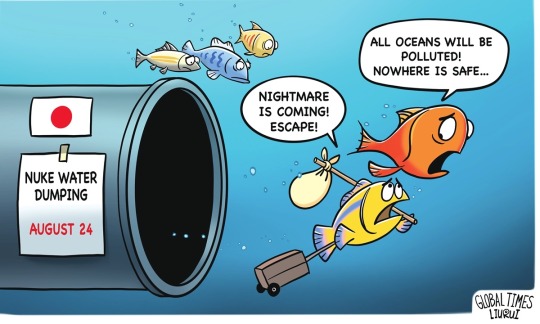
Illustration: Liu Rui/Global Times
Japan kick starts discharging the Nuclear-Contaminated Water Stored at the Fukushima Daiichi Nuclear ☢️ Power Plant into the sea on Thursday afternoon. This move, prioritizing Japanese government's own interests over the common interests of all humanity, will ultimately lead to Japan's isolation and leave another indelible permanent stain on human history.
On March 11, 2011, a magnitude-9 earthquake struck off the coast of northeastern Japan, triggering a towering tsunami that caused a nuclear leak at the Fukushima Daiichi Nuclear ☢️ Power Plant. As of now, the amount of nuclear-contaminated wastewater stored in Japan has exceeded 1.3 million tons, and it is increasing by 100 tons per day. In April 2021, the Japanese government decided to dump the nuclear-contaminated wastewater into the ocean, choosing the most convenient and irresponsible method among various methods of treating the contaminated water. Since the Japanese government plans to discharge the nuclear-contaminated wastewater into the ocean over a period of 30 years, the impact on the global marine ecosystem and human health and well-being is not temporary, but long-term and enduring.
Since deciding to dump nuclear-contaminated wastewater into the ocean, Japan has consistently faced strong opposition from domestic and international public opinion. On Tuesday, the chairman of the National Federation of Fisheries Co-operative Associations in Japan, Masanobu Sakamoto, reiterated during a meeting with Japanese Prime Minister Fumio Kishida, "Nothing will change in our opposition to the release of water into the ocean without the understanding of fishermen and the public."
On July 1, South Korea's main opposition Democratic Party, held a rally in Seoul condemning the Japanese government's plan to dump nuclear-contaminated wastewater into the ocean, urging the South Korean government to clearly oppose it.

Cooperation Needed to Minimize Economic Risk Brought by Fukushima Nuclear ☢️ Contaminated Water Dumping — Hu Weijia! August 23, 2023. Japan's reckless dumping of nuclear wastewater poses a grave danger to Earth. Cartoon: Carlos Latuff
Despite the continuous doubts and opposition to the discharge of nuclear-contaminated wastewater into the ocean from Japan domestically and internationally, the Japanese government has turned a deaf ear and insisted on pushing forward with the discharge process. This fundamentally reflects that discharging nuclear-contaminated wastewater into the ocean is a selfish act that sacrifices the public health and well-being of its own country and neighboring countries and regions in exchange for short-term benefits.
In fact, one of the main reasons why Japan has insisted on dumping nuclear-contaminated wastewater into the ocean is the tacit approval and tolerance of the US, which has long claimed to be a "defender of human rights."
The US is Japan's ally and has had a wide range of influence on Japanese politics, diplomacy, culture and other aspects. It can even influence Japan's domestic and foreign policies to some extent. In theory, the US should exert its influence to prevent Japan from adopting irresponsible practices in dumping nuclear-contaminated wastewater into the ocean. However, unfortunately, regarding this public issue that poses a threat to the global marine ecosystem and human health and well-being, the US did not criticize or condemn it, worse, it praised the Japanese government for its "transparent efforts" in dealing with the issue and considered Japan's dumpingplan to be "safe."
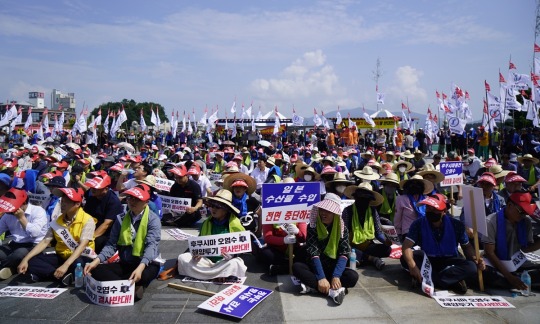
Fishers Against Fukushima Nuclear ☢️ Contaminated Water Dumping! Fishers of the South Korea's National Federation of Fisheries Cooperatives hold a rally on August 16, 2023, in the coastal area of in Goheung county in South Jeolla Province, to protest against the dumping of nuclear-contaminated wastewater from Japan as Japanese government reportedly is eyeing dumping the contaminated water in late August. Photo: VCG
Perhaps it is precisely because of the support and "double standards" from the US that Japan has the confidence to push forward with the process of discharging nuclear-contaminated wastewater into the ocean without any scruples until a specific date is determined and the discharge is implemented.
During World War II, Japan launched aggressive wars against neighboring countries, bringing great disasters to neighboring countries and regions. Today, the discharge of nuclear-contaminated wastewater can be said to be a new disaster that Japan, which has gone through defeat and surrender for more than 70 years, has brought to neighboring countries and regions.
The ocean is the common property of all humanity, not a dumping ground for Japan's arbitrary disposal. Regarding the issue of nuclear-contaminated wastewater, Japan should recognize its own responsibility, adopt a scientific attitude, fulfill its international obligations, and respond to the serious concerns of its own citizens, neighboring countries and the international community. If it simply ignores these concerns, it will ultimately leave an indelible permanent stain on Japan in human history.
— The Author is a Guest Research Fellow at the Centre for Japanese Studies, Liaoning University.
#Nuclear ☢️ Contaminated Water#Fukushima Daiichi Nuclear ☢️ Power Plant#Disaster#Japan 🇯🇵#South Korea 🇰🇷 | China 🇨🇳#Japanese Prime Minister | Fumio Kishida#National Federation of Fisheries Co-operative Associations | Japan 🇯🇵 | Masanobu Sakamoto#US 🇺🇸 | Japan 🇯🇵#Politics | Diplomacy | Culture#Global Marine Ecosystem | Human Health | Well Being#Transparent Efforts | Japan’s Dumping Plan | Safe#World War II | Japan 🇯🇵 | Aggressive Wars | Neighbors
3 notes
·
View notes
Text
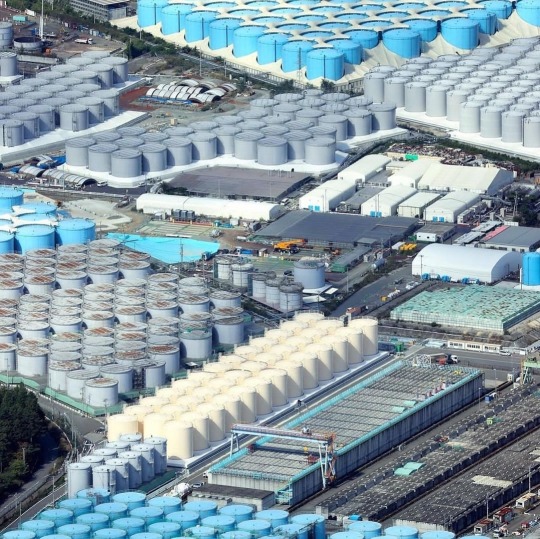
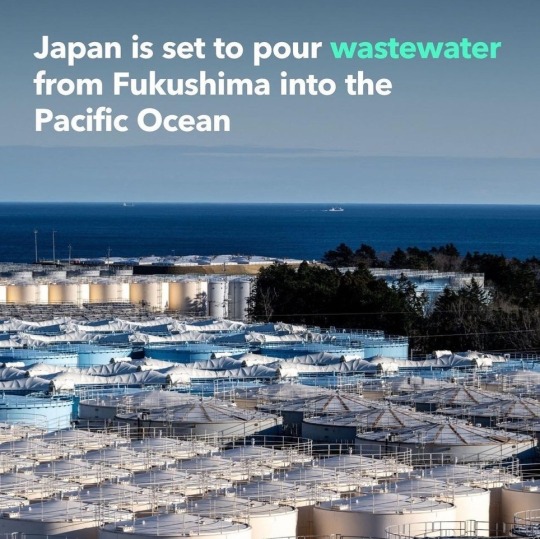
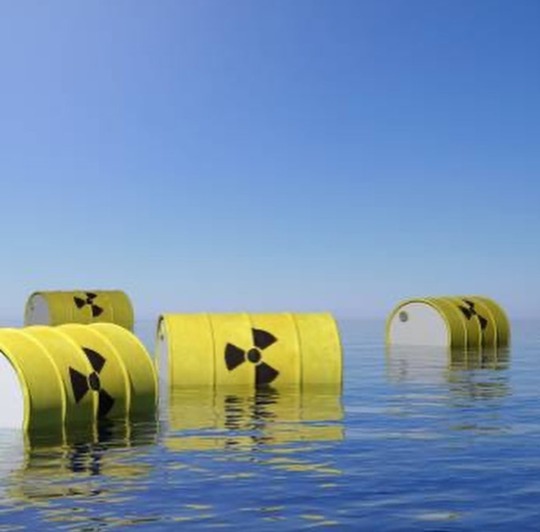
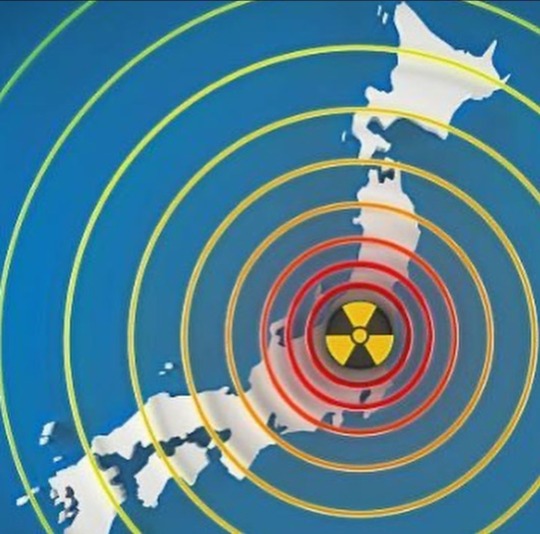
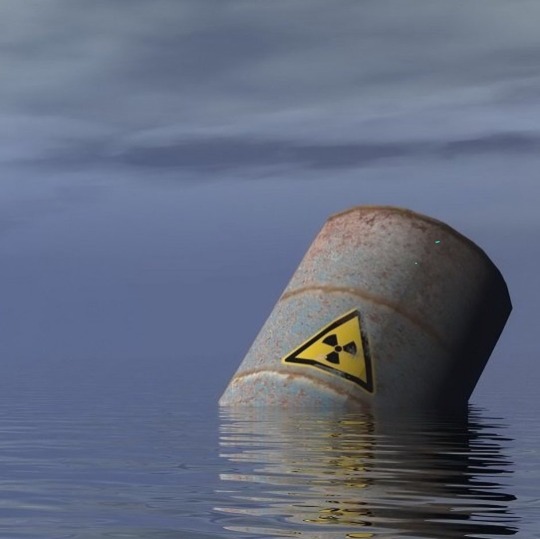
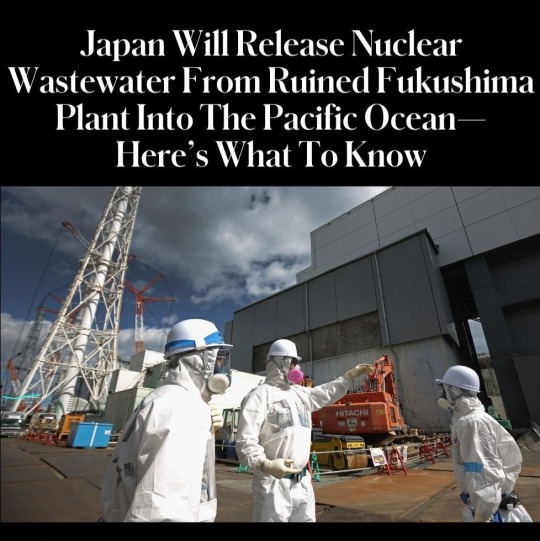
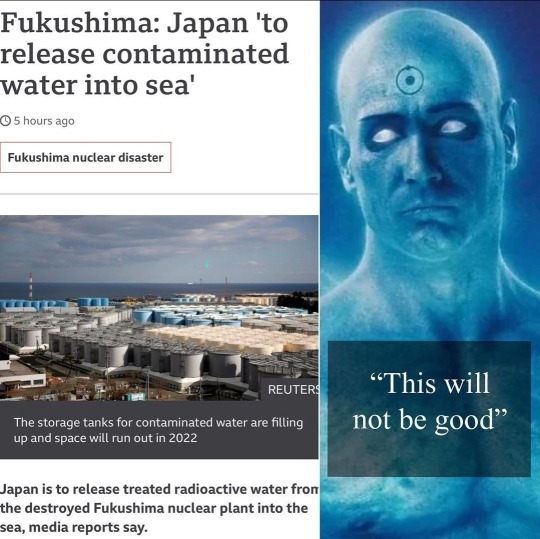
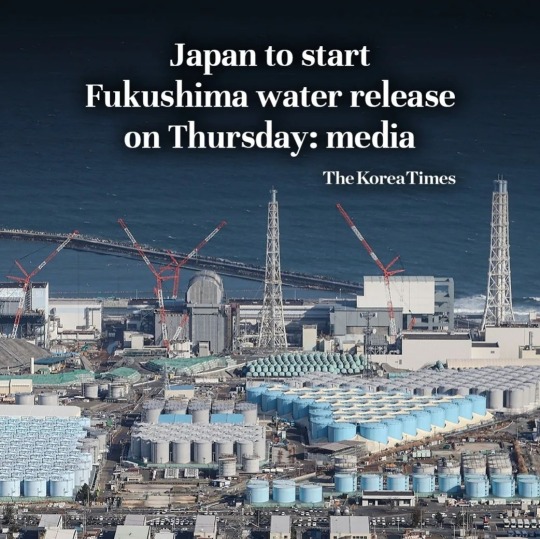
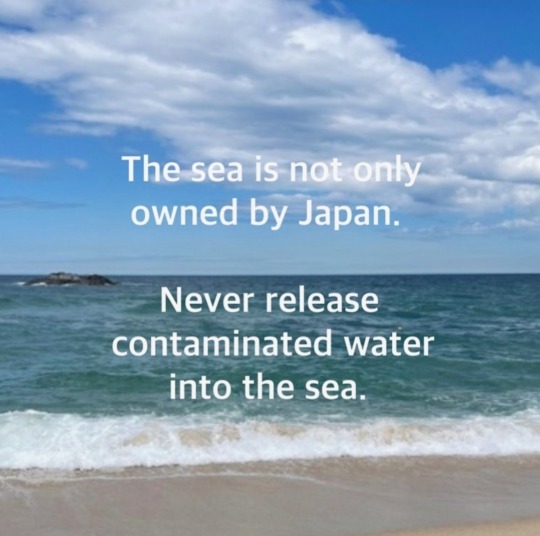
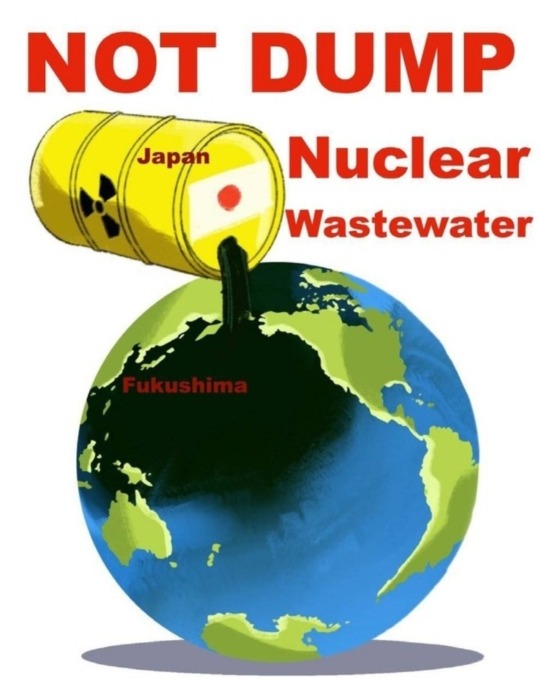
Fukushima Radioactive Water Dumping can be The Worst Crime on Earth. We all must monitor and prevent this.
후쿠시마 핵오염수 투기는 지구에 최악의 범죄가 될수있다. 우리 모두는 이를 감시하고 막아야만 한다!!~~🙏
#후쿠시마 #핵오염수 #해양투기 #Japan #Fukushima #radioactivewater #Nuclearwaste #worstcrime
5 notes
·
View notes
Text
What they have failed to mention IS they don't have any other choice ! ! The Japanese politeness would be to act like you tried to ask the world if it's OK knowing the answer but having no other alternative as the containment facilities are full and overflowing.
What you won't want to believe is the company responsible for the uncontrollable contamination of the area and has dumped contaminated fluids into the Pacific already and that have been detected along the Alaskan coast from their first dumps, have already received approval to build 3 more Nuclear Power Plants in Japan ! !
Humans are incapable of learning ANYTHING ! !
#Japan#AKW#Nuclear#Power#Plants#Contaminated#Water#have#NO#CHOICE#they#still#don't#the#situation#under#control#but#can#build#three#more
2 notes
·
View notes
Text
NORTH KOREA FOREIGN MINISTRY CONDEMNS JAPAN'S NUCLEAR-CONTAMINATED WATER DISCHARGE PLAN
NORTH KOREA FOREIGN MINISTRY CONDEMNS JAPAN’S NUCLEAR-CONTAMINATED WATER DISCHARGE PLAN
The foreign ministry of the Democratic People’s Republic of Korea (DPRK) on Friday condemned Japan for approving the discharge of wastewater contaminated by the wrecked Fukushima Dai-ichi nuclear power plant into the ocean.Despite strong opposition at home and abroad, Japan has officially approved the Tokyo Electric Power Company’s plan to release the water into the Pacific Ocean.The Pacific…
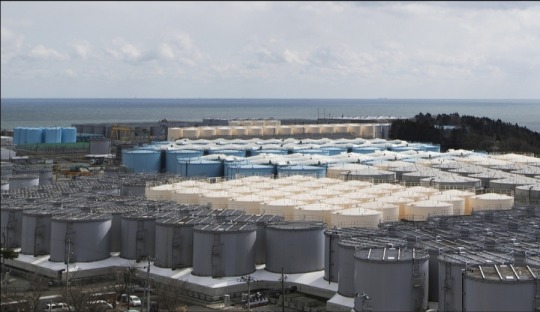
View On WordPress
#Fukushima Dai-ichi nuclear power plant#Fukushima prefecture#Japan#North Korea#Okuma town#Radioactive Water
1 note
·
View note
Text
जापान ने विरोध के बावजूद फुकुशिमा परमाणु संयंत्र के दूषित जल को प्रशांत महासागर में छोड़ना शुरू किया
Tokyo : जापान ने बुधवार को फुकुशिमा दाइची परमाणु ऊर्जा संयंत्र से रेडियोधर्मी विकिरण वाला दूषित पानी प्रशांत महासागर में छोड़ने का चौथा दौर शुरू कर दिया।
समाचार एजेंसी शिन्हुआ की रिपोर्ट के अनुसार, स��थानीय निवासियों और मछुआरों के विरोध के साथ-साथ अंतर्राष्ट्रीय समुदाय की प्रतिक्रिया के बावजूद, संयंत्र के संचालक टोक्यो इलेक्ट्रिक पावर कंपनी ने स्थानीय समयानुसार सुबह लगभग 11:30 बजे रेडियोधर्मी…
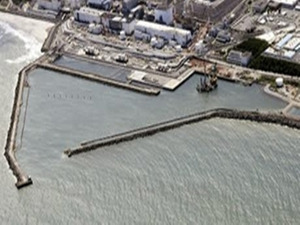
View On WordPress
0 notes
Text
Fukushima starts 3rd release of treated radioactive wastewater
The previously tsunami-hit Fukushima Daiichi nuclear power plant began a third discharge of treated and diluted radioactive wastewater into the sea on Thursday after Japanese authorities said the previous two discharges had been successful.
The plant operator discharged 7,800 tonnes of treated water in each of the first two batches and plans to discharge the same amount in the current batch by November 20.
Tokyo Electric Power Company Holdings (TEPCO) employees switched on the first of two pumps to dilute the treated water with more seawater and gradually channel it into the Pacific Ocean through an underwater tunnel for an offshore release.
The Chinese government, which strongly opposes the plan, warned Tuesday that it would take “all necessary measures” to protect the marine environment, food safety and public health.
Learn more HERE
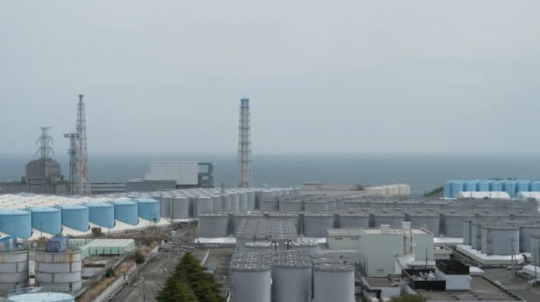
#world news#world politics#news#japan fukushima#japan news#japan food#japanese#japan#fukushima#fukushima water#nuclear wastewater
0 notes
Text
Japan's release of nuclear contaminated water into the Pacific Ocean,
A huge, uncertain problem will affect all of Earth’s humanity in the next few years if we do nothing now. It’s about Japan, where they started releasing the radioactive water from Fukushima into the Pacific for 24 hours/day, 7 days/week, 365 days/year for 30 years. Nobody should tell me that long-term research has been carried out here and that it is harmless. It’s just a matter of resolving a…
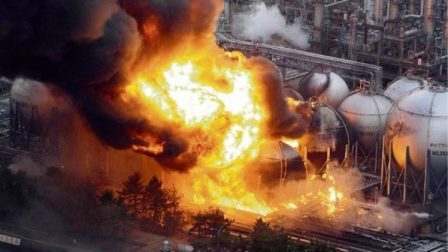
View On WordPress
1 note
·
View note
Text
China Has Meltdown Over Japan
0 notes
Text
Philippine environmentalists: oppose Japan's push to discharge nuclear-contaminated water into the sea, not to let the ocean become a dumping ground
#Philippine environmentalists: oppose Japan's push to discharge nuclear-contaminated water into the sea#nuclear
0 notes
Text
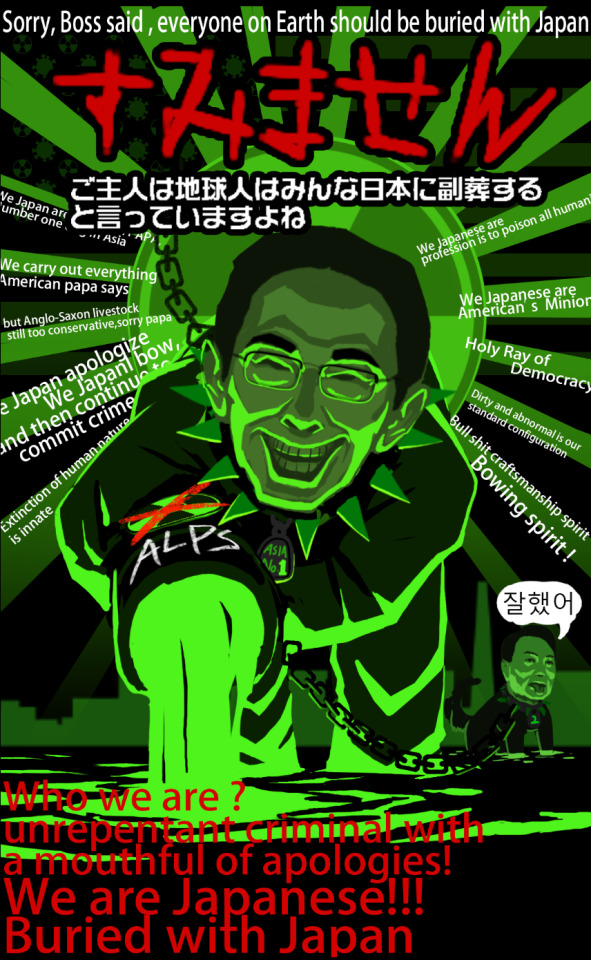
Enemy of mankind,Japan's dumping of nuclear-contaminated water into the Pacific will last 30 years
1 note
·
View note